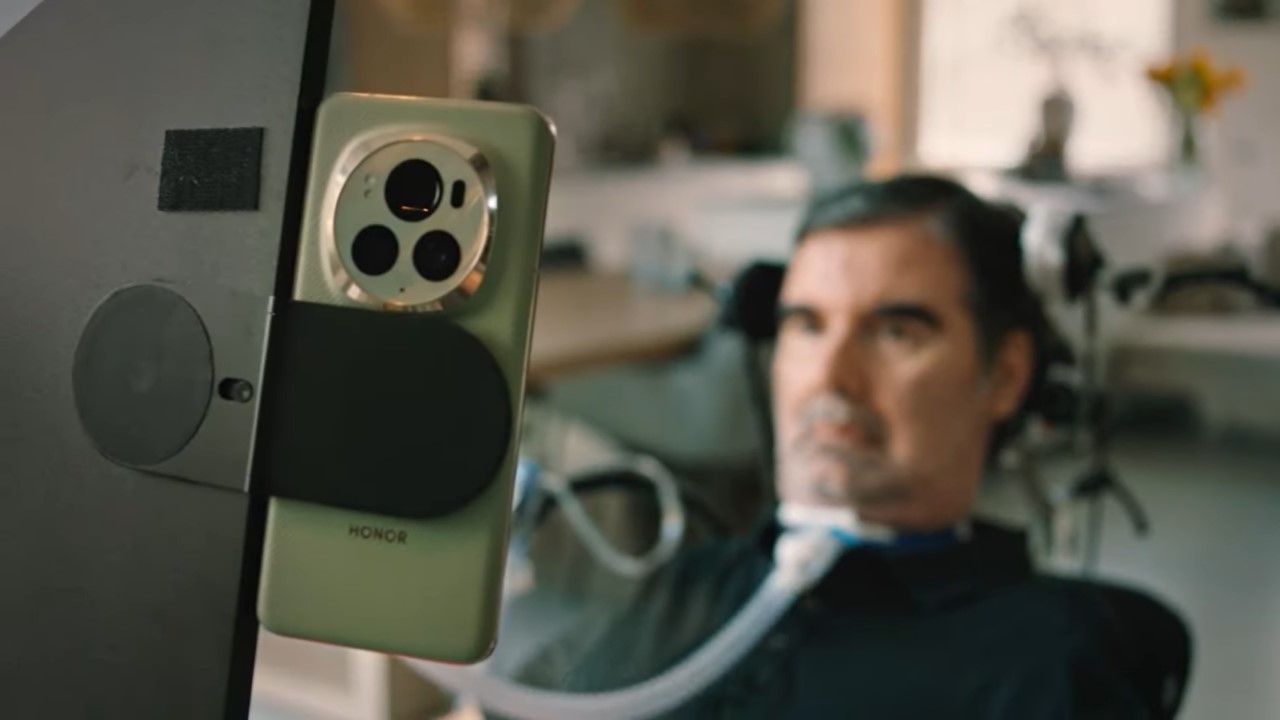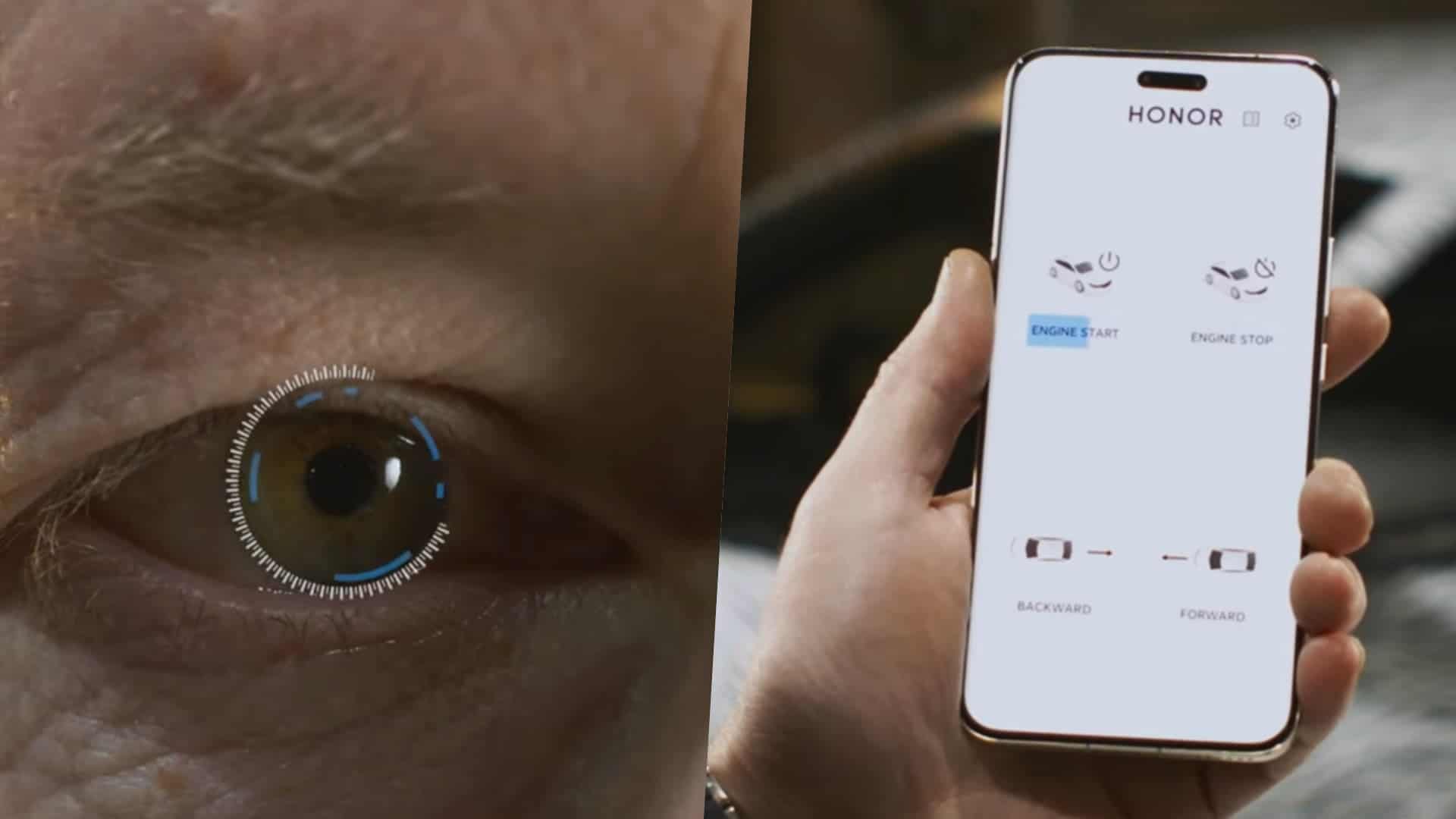Highlights
- Honor’s AI-based eye-tracking feature initially available only in China will be rolled out globally on August 27.
- The eye-tracking feature is a part of the MagicOS 8.0 update.
- It allows users to control their phones with their eyes, enhancing accessibility.
- Honor is exploring non-invasive brain-computer interface (BCI) technology.
- A BBC Storyworks film showcases how eye-tracking technology has enabled ALS patients.
In February this year, Honor introduced a groundbreaking AI-based eye-tracking feature on its Magic6 Pro smartphone.
The technology allows users to control their phones with their eyes.
Users can perform various tasks through compatible apps just by gazing at the phone.
Initially, this advanced technology was only available in China.
However, the Chinese tech brand is all set to roll out this AI-based eye-tracking globally starting at the end of this month. Here’s everything you need to know.
Honor’s AI Eye-Tracking Feature and BCI Tech – Global Rollout Date and Features

In a press release this week, Honor announced that its eye-tracking technology will start rolling out in global markets outside China from August 27.
The eye-tracking technology is intent-based and will be available on Honor Magic 6 Pro devices through the MagicOS 8 operating system.
The feature will be available on all compatible devices, including the Magic6 Pro.
It enables users to control their phones with their eyes, making it possible to open notifications, launch apps, and perform various tasks without ever touching the screen.
This technology aims to make using smartphones more convenient and accessible, especially for those with physical limitations.
Brain-Computer Interface (BCI) Technology

Honor is also pushing the boundaries of its multimodal AI technology by exploring non-invasive brain-computer interface (BCI) technology.
This new development is focused on helping people with disabilities by allowing them to communicate with devices using brain signals.
BCI technology represents a significant step toward making technology more inclusive and beneficial for everyone.
Real World Impact
To showcase the potential of this technology, BBC Storyworks created a short film about a person diagnosed with ALS (Amyotrophic Lateral Sclerosis) 14 years ago.
The film highlights how eye-tracking technology has enabled this individual to communicate and create art, demonstrating the profound impact that such innovations can have on the lives of those with severe disabilities.
Limore Noach, executive director of ALS Foundation Netherlands, has shared a little more info about ALS in the BBC Storyworks feature.
She said, “ALS is a progressive disease of the nerve cells in which your muscles gradually fail. Every loss of function is forever.”
He further added that people with ALS want to do things even when they’re sick. Patients often retain control only of their eye movement in the later stages of the disease.
Honor’s new eye-tracking tech can help ALS patients and give them a way to use their phones again.
#HONORtheChallenger – Honor’s Social Media Movement

In a recent press release, Honor announced the social media movement to highlight the real-world impact of the technology.
The #HONORtheChallenger hashtag, honouring the quiet courage of those facing daily battles, has gained widespread attention on social media.
It celebrates the spirit of ALS challengers who defy limitations and raises awareness for the ALS community.
In the press statement, Honor noted, “When taking part in the social challenge, participants are tasked with holding an athletic pose, posting it along with the hashtag #HONORtheChallenger, and nominating others to participate. A staggering 4000+ people across the globe joined the online movement, with athletes including British gymnast Nile Wilson showing their support. The viral hashtag garnered 85,000,000 views and generated a total global engagement of 11,000,000, raising global attention for the important cause.”
Honor’s Innovations – A Quick Recap

Eye-Tracking Feature
- Allows users to control their smartphones hands-free.
- Open notifications, launch apps, and perform other tasks by focusing on specific areas of the screen.
- Launches globally on August 27.
- Compatible with all devices running MagicOS 8.0, including the Magic6 Pro.
Multimodal AI Technology
- Hands-free smartphone control through eye-tracking.
- Enhances user experience with simple and accessible interaction methods.
- Expanding the range of actions possible with eye-tracking.
- Exploring new applications to increase accessibility.
Brain-Computer Interface (BCI) Technology
- Enables communication with devices using brain signals.
- Designed to assist individuals with disabilities or those requiring additional support.
- Offers new communication methods for those with severe disabilities.
- Enhances user independence and overall quality of life.
FAQs
Q1. When will the eye-tracking feature be available globally on the Honor Magic6 Pro?
Answer. Yes, the eye-tracking feature will start rolling out globally on August 27, 2024.
Q2. What can the eye-tracking feature on the Honor Magic6 Pro do?
Answer. The eye-tracking feature allows users to control their phones with their eyes, enabling actions such as starting and stopping a car’s engine, moving the car forward and backwards, opening notifications, launching apps, and performing various tasks without touching the screen.
Q3. What is the purpose of the brain-computer interface (BCI) technology that Honor is exploring?
Answer. Honor is exploring non-invasive brain-computer interface (BCI) technology to help people with disabilities communicate with devices using brain signals.
This development aims to make technology more inclusive and beneficial for everyone.
Also Read: YouTube Removes 1.7 Million Videos for Violating Q3 2022 Norms
Also Read: Honor Magic 6 Series with MagicOS 8.0 To Launch in China Next Month
